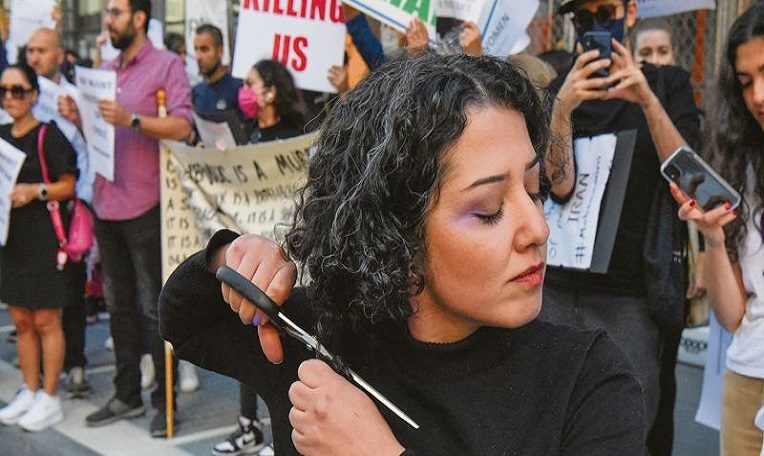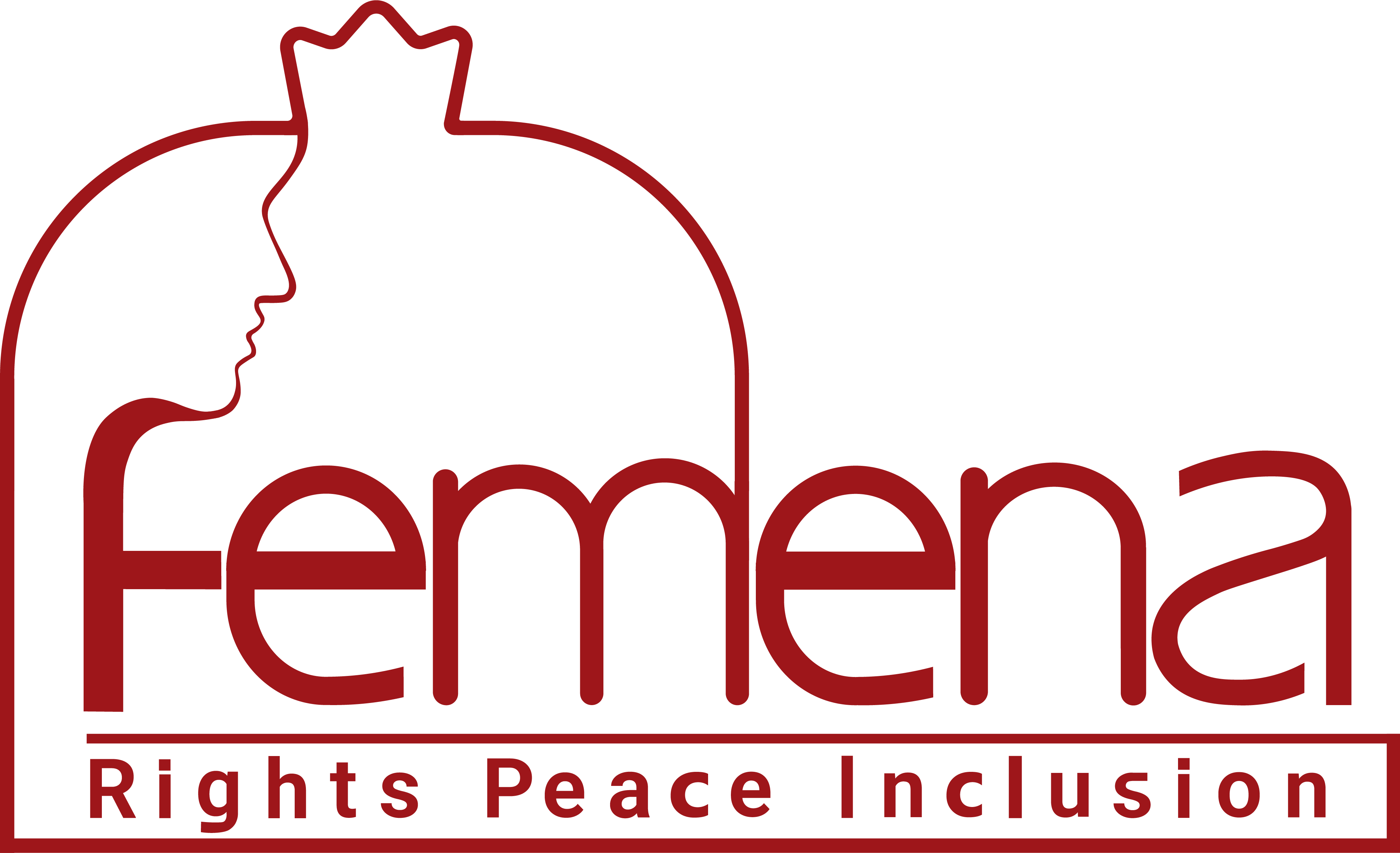
The Lancet: The death of Mahsa Amini has highlighted the lack of women’s autonomy in Iran, and its implications for health and beyond. Sharmila Devi reports.
A wave of demonstrations that has spread across Iran, the biggest in over a decade, has been led by mostly young women showing open defiance by burning their veils and cutting their hair to protest their lack of autonomy and agency under the country’s theocratic government.
The protests started after the death in custody of 22-year-old Mahsa Amini, after she was detained on Sept 13 for wearing “inappropriate attire” by the Iranian Guidance Patrol, known as the morality police because they enforce the Islamic dress code, including headscarves. Police say Amini had a heart attack, but her father said she had bruises on her legs and he blamed the police for her death.
Protests erupted at her funeral on Sept 17, spread across all 31 of Iran’s provinces and involving people of diverse backgrounds chanting the slogan “Woman, Life, Freedom” to oppose the authoritarianism of the ruling Islamic clerics. A crackdown by security forces has led to the death of up to 150 people, hundreds injured, and thousands arrested by early October, say human rights groups.
“It has been so inspiring and I’m in awe of what these women have taken on”, Tara Sepehri Far, Iran researcher at Human Rights Watch, told The Lancet. “The demonstrations aren’t always huge and they aren’t organised and they’re scattered across the country, in schools, universities, and other places. Regardless of how the regime pushes back, they can’t shut down the conversation that has started and which goes beyond the hijab, which is a visible symbol of women’s second-class status.”
Since the Islamic revolution of 1979, women have been increasingly confined within a legal and cultural framework focused on family and motherhood, with little freedom to choose how to live their lives. Iranian women have more access to education and some work opportunities than do women across other countries in the region, but few hold senior positions in education, for example, although they make up 59% of university students. Fathers can veto the marriage of their daughters, while husbands must give approval for their wife to study or work. Men can divorce more easily, while women need the approval of a judge, a position that can only be held by men.
“The Islamic regime handed over the regulation of women’s bodies to the mullahs to assuage the clerical base and give them a role in the political system”, Negar Mottahedeh, Professor of Gender, Sexuality, and Feminist Studies at Duke University (Durham, NC, USA), told The Lancet. “The hijab is just one form of compulsion and the protests are about dignity and autonomy in choosing how to live.”
The severe restrictions impact not just women’s reproductive and mental health, but all aspects of a woman’s life, Roya Boroumand, Executive Director of the Abdorrahman Boroumand Center for Human Rights in Iran, based in the USA, told The Lancet. “I spend so much time documenting the regime’s abuses, including executions and amputations, and we can forget how difficult life is for Iranian women on a daily basis”, she said. “I have been speaking with Iranian women and they say the fear never goes away.”
Boroumand told of one woman who said that, even in exile, when she left her home she sometimes felt scared because she was not wearing the hijab. Another woman said that she was repeatedly told off at school for laughing too loudly. Another said that her school years were scarred after being severely reprimanded for failing to recite prayers correctly in front of the class. “I hear that some women in exile won’t see a doctor if they fear they have a sexually transmitted disease because, in Iran, the doctor would question them about their marital status and other personal details”, said Boroumand.
The recent protests came after increasingly repressive laws were brought in by Iranian President Ebrahim Raisi, including a population law approved late last year that outlaws sterilisation and free distribution of contraception, and adds to existing limits on abortion and contraception.
“In Iran, men can ban women from working, leaving the country, or getting married if she’s a virgin. Men can get away with adultery, but not women”, Bijan Baharan of the League for the Defence of Human Rights in Iran, a member of the International Federation for Human Rights, told The Lancet. “There was a case of a man who beheaded a woman for adultery and he carried her head into the street to put on display.”
Iran justifies its limits on family planning under its aim to boost the current population of around 80 million people. Its discarded model of family planning, brought in after a baby boom that followed the Iran–Iraq war of the 1980s, had been hailed as a model by WHO, Arash Alaei, health science Professor at California State University Long Beach (Long Beach, CA, USA), told The Lancet.
“Iran used to have a very good public health system and infrastructure, regardless of gender. But after the revolution, they tried to introduce health services for women delivered by women and it’s been a disaster”, he said. “The new population law also makes it almost impossible to conduct prenatal testing [for genetic conditions] and we know doctors are very against this.”
The population law criminalises abortion and individuals performing the procedure could face the death penalty, while state incentives to increase the fertility rate (eg, financial payments), would not be implemented quickly given the state of the economy hit by sanctions, Sussan Tahmasebi, Executive Director of FEMENA, a women’s rights group, told The Lancet. “The protests show that Iranian women, especially younger women, care about bodily rights”, she said. “They are very restricted and discriminated against, but they are using every opportunity to resist, they are not just victims.”
Women are reluctant to see a doctor in cases of unwanted pregnancy, Fariba Parsa, a non-resident senior fellow at the Middle East Institute, a think tank based in Washington (DC, USA), told The Lancet. “Doctors record a woman’s pregnancy and follow up at birth so if a woman has an abortion, she could face arrest for murder”, she said.
Rights activists are also concerned over the rising rates of child marriage as families seek to cope with increasing poverty by marrying off young daughters. The minimum age for marriage is 13 years for girls and 15 years for boys, but can be lower with parental and judicial permission. “The health impact of early marriage on young girls is horrendous. The physical impact can include deformity of the sex organs, bleeding, and rupture of organs. Girls also have to live with fear and humiliation, and suffer from depression, while others may react with what some people view as aggression”, said Boroumand. “I heard of a woman who was given a diagnosis of bipolar disorder just because she was seen as overly aggressive and she was administered strong medication.”
Activists also worry that rates of intimate partner violence, which are often under-reported, are also rising, adding to the mental health burden of many Iranian women. “The media does report domestic violence, but the law is not on the side of women who are even more vulnerable and suffer more than if they lived in a democratic state”, Fatemeh Aman, also a non-resident senior fellow at the Middle East Institute, told The Lancet.
The COVID-19 pandemic has worsened the economy, along with employment prospects for women and Afghan refugees, many of whom are undocumented and are estimated to number more than 2 million people. “Many Afghan women are the breadwinner, but they have the least protection”, said Aman.
“Only two countries, Iran and Afghanistan, force women to wear the veil. Even in Saudi Arabia, young people and western women aren’t obliged to wear it, so Iran is up there with the Taliban”, Barbara Slavin, Director of the Future of Iran Initiative at the think tank Atlantic Council (Washington, DC, USA), told The Lancet. “The current Iranian Government is the worst I’ve seen and young women are saying they will no longer put up with it.”
Kamiar Alaei, Department Chair of Health Science at California State University Long Beach, and his brother Arash are helping to train activists remotely on how to collect evidence under the UN Istanbul Protocol on the documentation of torture and ill treatment. In Iran, both brothers were convicted of working with an “enemy government” following their work on HIV and AIDS. Kamiar was released after more than 2 years in prison, while Arash was released after 3 years. “Iranian doctors are taking part in protests for the first time, which shows how widespread they are”, said Kamiar Alaei. “I am optimistic now about Iran and we say to academics around the world, please support the Iranian people.”


